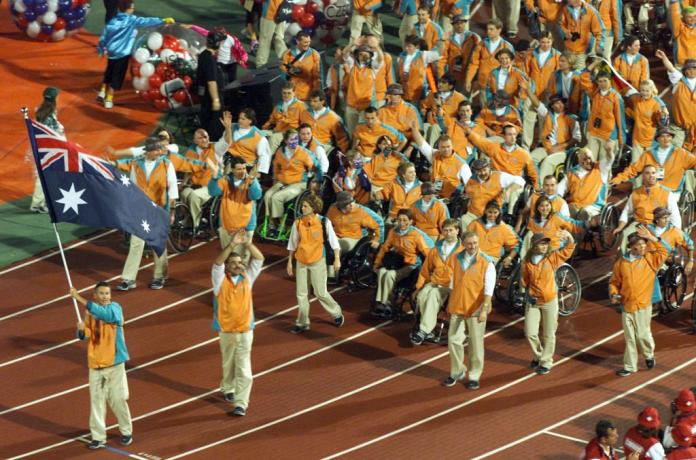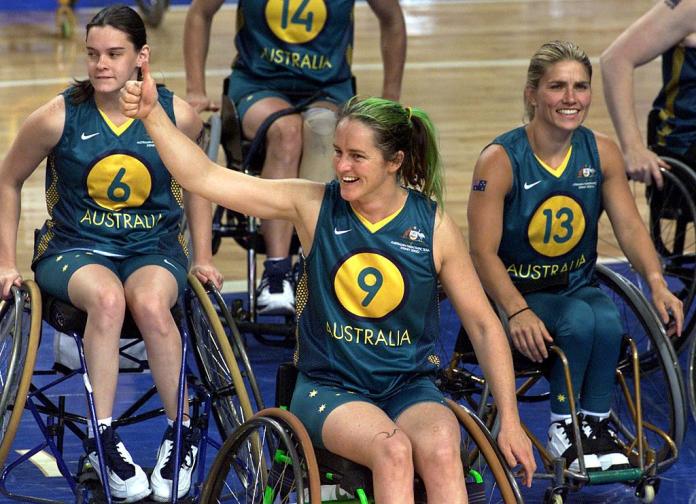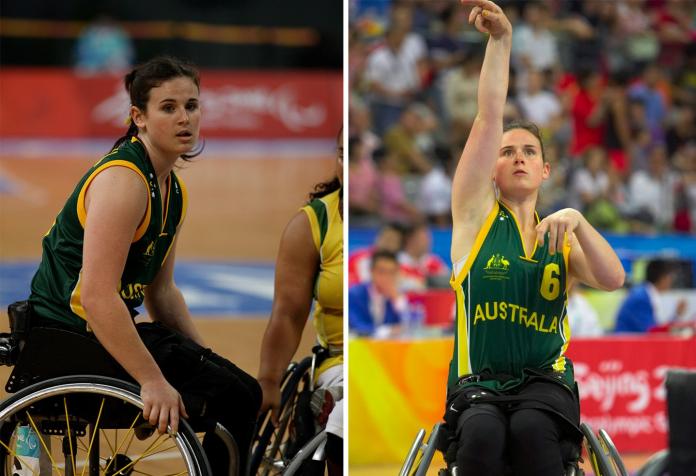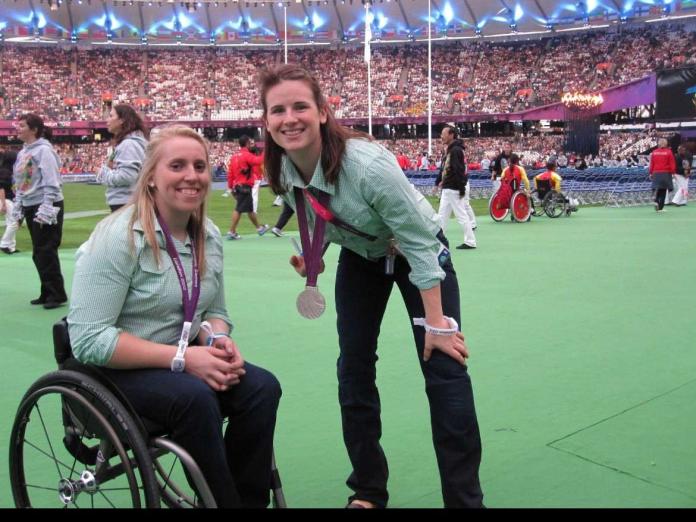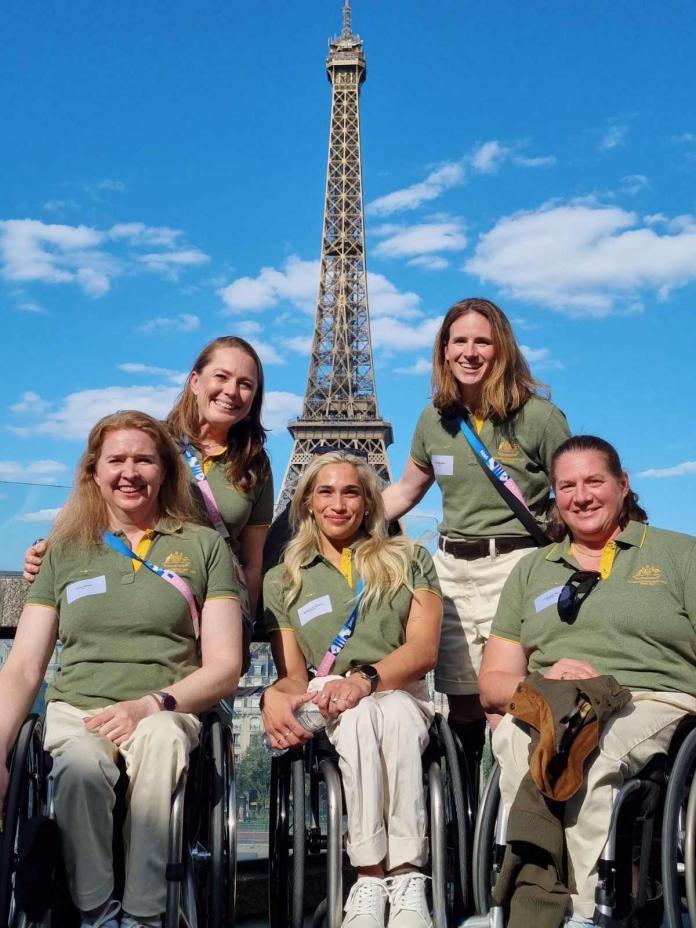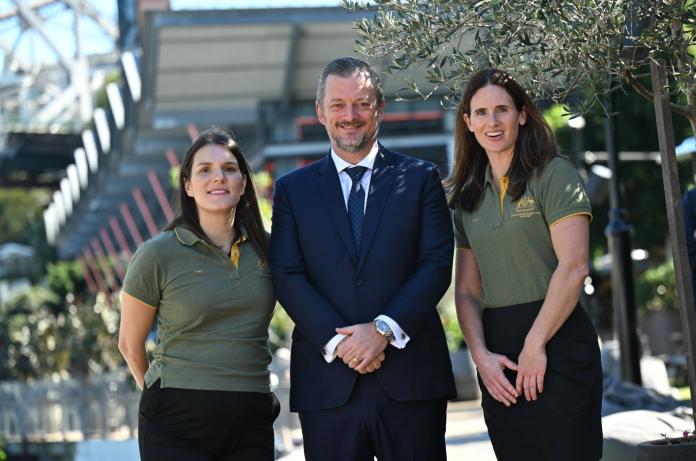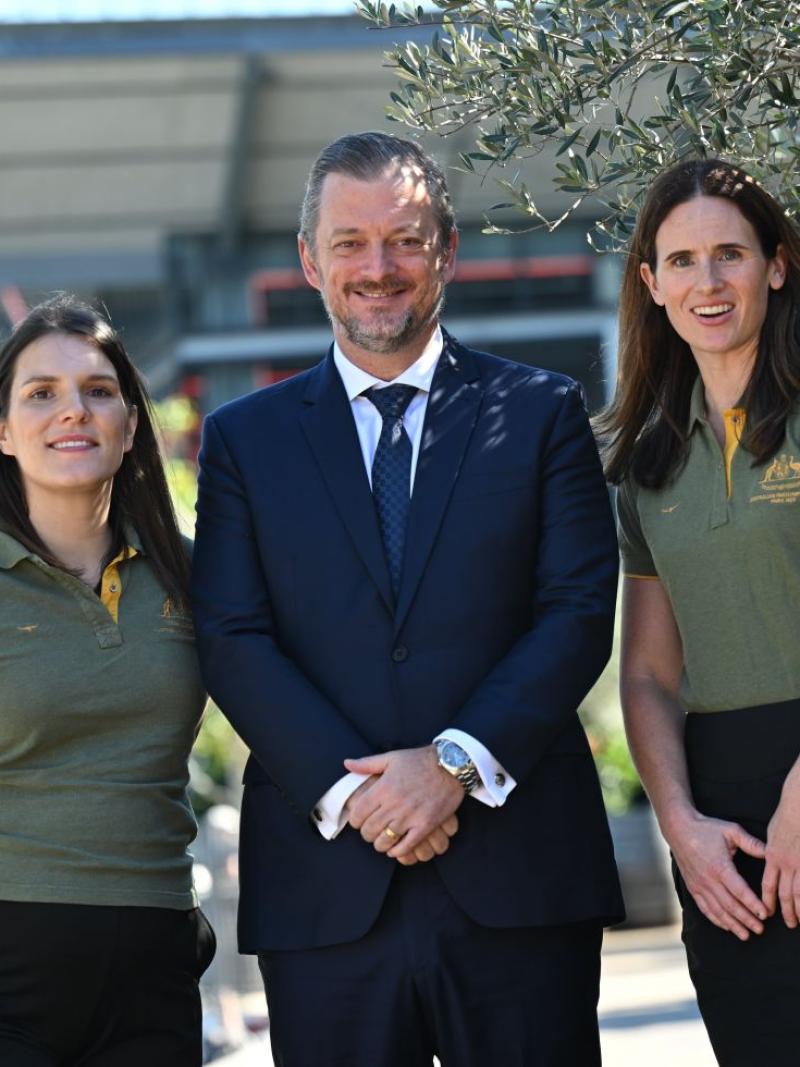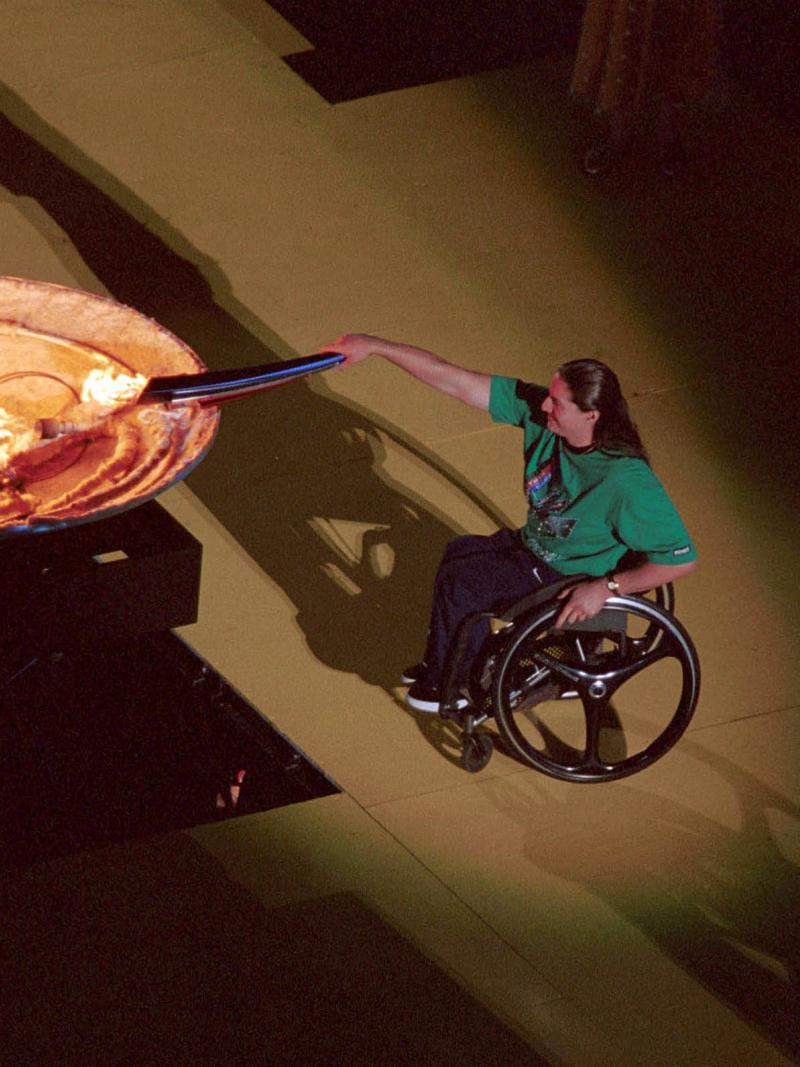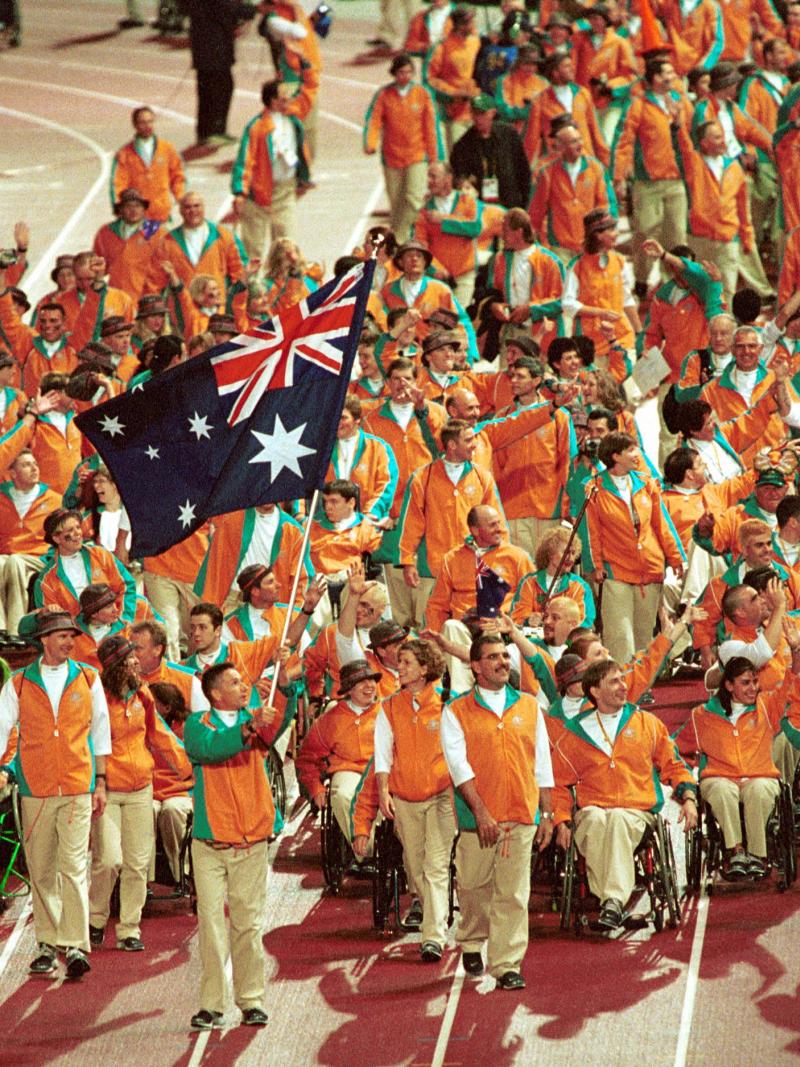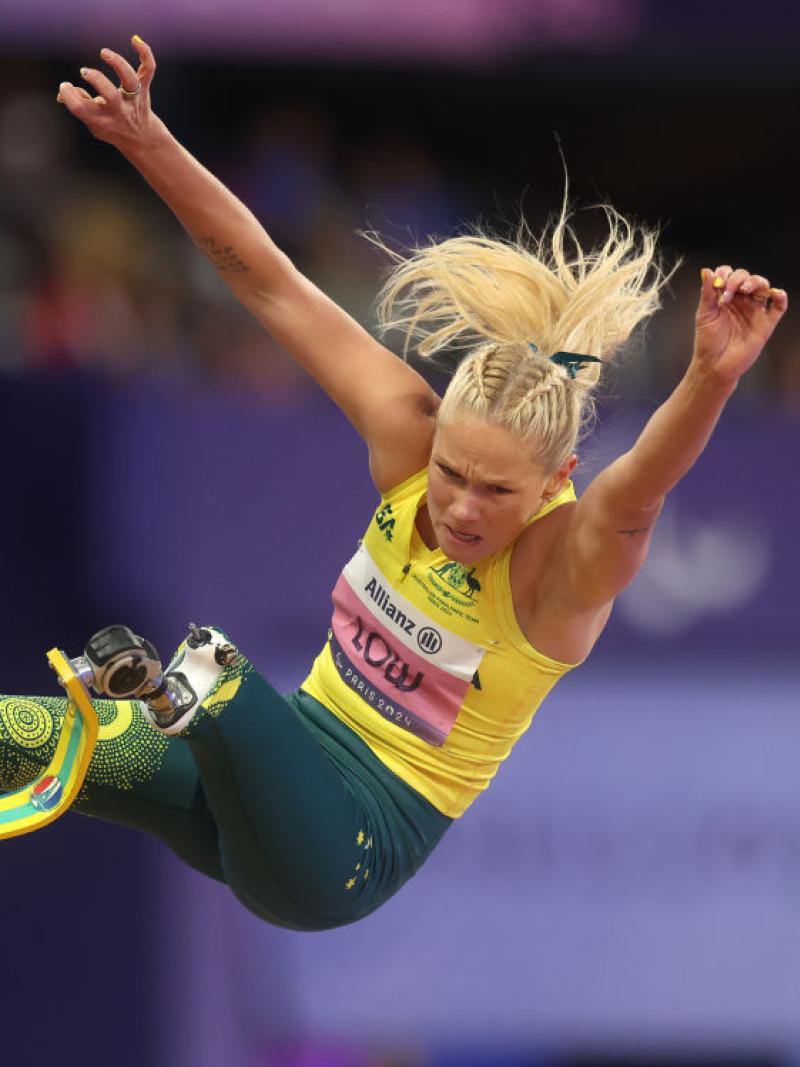Sydney 2000 anniversary: Bridie Kean says Games showed that “sport is for all of us”
Australian two-time Paralympian Bridie Kean shares how watching the Sydney 2000 Paralympic Games from the stands opened the door to new opportunities through Para sport 20 Oct 2025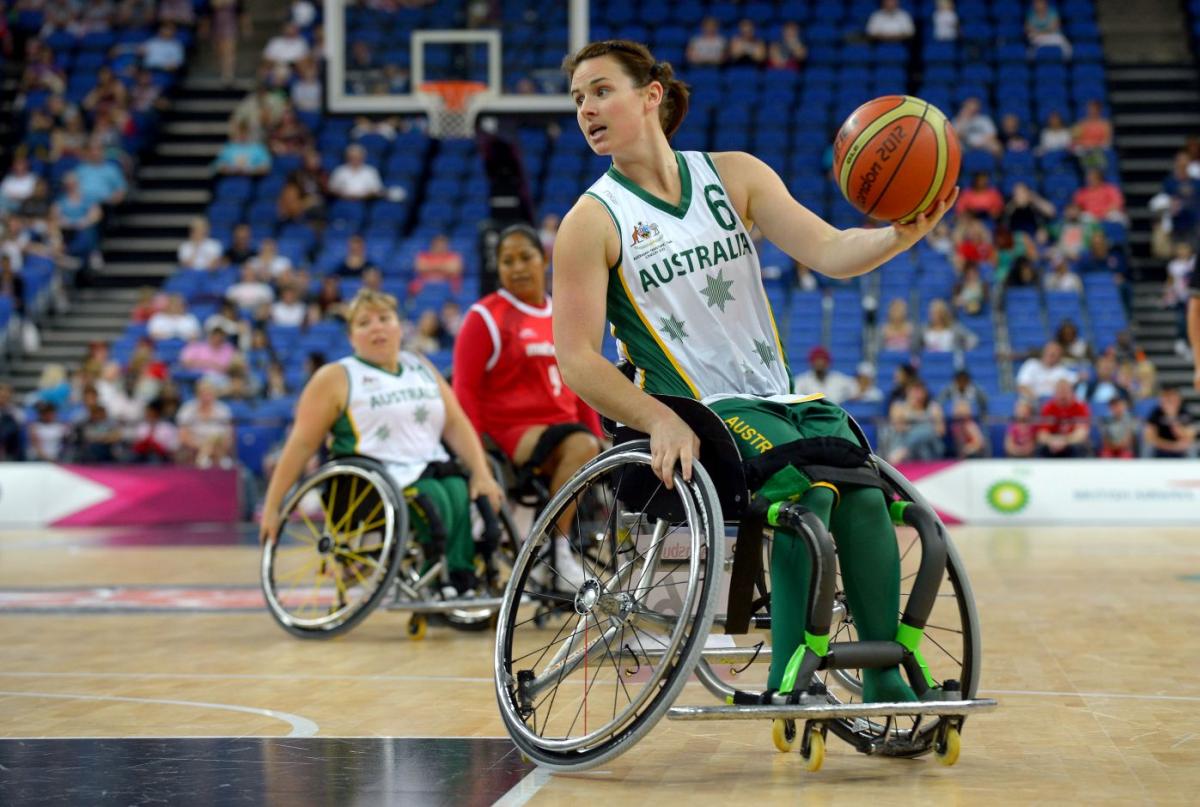
Twenty-five years ago, 13-year-old Bridie Kean was watching the Sydney 2000 Paralympic Games from the stands with her support group for children with disabilities, thinking for the first time that sport could be something she could pursue.
It opened the door to many possibilities for Kean, now a two-time Paralympic wheelchair basketball medallist who has also played a role in Brisbane’s bid to host the Paralympic and Olympic Games in 2032.
“It just blew me away once I got to Sydney. It was such a transformational experience to be in Sydney and to watch the athletes,” Kean recalled.
“For many of us, who had not yet engaged in Para sport, it was just life changing in that we saw the real possibility to play Para sport, let alone go to the Paralympics."
Celebrating 25 years
Sydney 2000, held from 18–29 October 2000, featured 3,871 athletes from more than 120 delegations competing in 19 sports. With more than 300 world and Paralympic records broken, the Games showcased the rising standards in level Para sport.
Australian athletes took the spotlight on home soil, finishing atop the overall medals table with 63 golds. The Games also made a tremendous impact outside the field of play – inspiring many children with disabilities, including Kean, to take up sport.
Looking back at the 11-day Games, Kean says she has memories of watching many sports, from Para athletics at the Sydney Olympic Park to cheering for Para swimmers at the International Aquatic Centre. Whenever she saw Australian Paralympians, she and her friend Kathleen O’Kelly-Kennedy asked them to sign their T-shirts or prosthetic legs to keep as memorabilia.
But the encounter that changed her life took place at the wheelchair basketball venue. The group was watching the Australian men’s wheelchair basketball team compete when they were approached by Liesl Tesch, a star player on the women’s team, the Gliders.
Tesch, who helped the Gliders win silver at Sydney 2000, shared what it was like to play wheelchair basketball and what it meant to be an Australian Paralympian. Seeing that Kean and O’Kelly-Kennedy had prosthetic legs, she encouraged them to give the sport a try.
“I will always remember to this day,” Kean said. “She just said, ‘go home and start wheelchair basketball’ – and that just stuck with me.
“Up until that moment I had played able-bodied basketball and I wanted to play with my peers. Then in that moment, I wanted to be a Glider. I wanted to be on that team, and it was an absolute dream.”
From the stands to the podium
Soon after returning home, her parents found a local tournament, and she tried playing in a wheelchair. Kean fell in love with the sport right away, and the wheelchair basketball community became her second home.
She remembers practicing dribbling in a wheelchair in her driveway and taking the chair to school to make it part of her daily life.
Kean also kept in touch with Tesch, who returned to Australia after playing in Europe. Her hero became her friend and mentor.
“She taught me how to juggle wheelchair basketball with life and just this philosophy of chasing wheelchair basketball games and loving what we do,” Kean said.
They also became teammates on the national team, winning bronze at Beijing 2008. Four years later, Kean captained the team to silver at London 2012.
“I can’t believe that in 25 years, we’ve had the opportunity to play for Australia together, to medal together. It’s also what it means to be a Glider – it’s such a special programme to be a part of.”
Once a Glider, always a Glider
Since retiring from the national team after Australia failed to qualify for Rio 2016, Kean became a leading sports administrator in the country. Like the saying “Once a Glider, always a Glider,” wheelchair basketball and Para sport hold an important place for her.
She is currently a lecturer in public health at the University of the Sunshine Coast. Her research explores how to create equitable opportunities to and through sport and physical activity for persons with disabilities.
She is also a Director of the Australian Sports Commission, which is the Australian government agency responsible for supporting and investing in sport at all levels.
Being involved in Para sport for 25 years now, Kean sees the growth of sport in the country. There are more awareness and more programmes that support persons with disabilities to access sport.
“When I was 13, I hadn’t seen any Para sport played out until I went to the Games. Now, we have such incredible coverage of the Games.
“Even when it’s not Games time, we have so much support in Australia for Para athletes and the Paralympic pathway. There are more options to be engaged in different sports. It has been exciting.
“Also people know Paralympic athletes’ names, and they know about the sports. The awareness means that people already know about (the Games) before it comes around every four years.”
Counting down to a home Games
Now Australia is preparing to welcome thousands of Para athletes and fans when the Brisbane 2032 Paralympic Games open on 24 August 2032. While there are still seven years to go, Kean has already been thinking about the legacy of the Games and how it could improve the lives of persons with disabilities.
“I want people with a disability who want to engage in sport to have more options as a result of hosting the Games. I think that’s what we’re seeing already through additional support.
“Sport is a unifier, it’s something that brings us together. I draw back to my own experience of what it was like to find sport. I want kids to have the option to play sport too.”
When asked to share a message with her teenage self, Kean looks back at her years in the Paralympic Movement in Australia and looks ahead to Brisbane 2032.
“I guess the thing about Sydney is, when I look back at the 13-year-old who arrived in Sydney and maybe [was] not sure that sport had a place for me - the message is: it does,” Kean said. “Liesl with her time and having that one-on-one interaction with me made me realise that.
“But I want and I think Brisbane can do this. I think Brisbane sends that message widely to everyone with a disability that you do have a place in sport. You belong. Sport is for all of us.”





